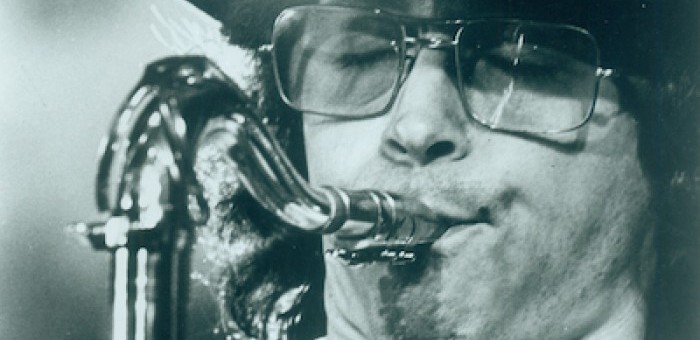Jan 13, 2026 2:09 PM
More Trump-Kennedy Center Cancellations
The fallout from the renaming of the John F. Kennedy Center for the Performing Arts to include President Donald…

Leandro “Gato” Barbieri (1932–2016) (Photo: DownBeat Archives)
(Photo: )Saxophonist Leandro “Gato” Barbieri, the influential Latin bandleader who composed the Grammy-winning music for the 1972 film Last Tango in Paris, died April 2 in New York. He was 83.
Barbieri’s wife, Laura, confirmed that the cause of death was pneumonia.
Born in Argentina on Nov. 22, 1932, Barbieri began his musical career on clarinet, but switched to saxophone while still in his youth. In 1947 he moved with his family to Buenos Aires, where he apprenticed under the esteemed Argentine pianist/composer Lalo Schifrin. There he also earned the nickname “Gato” (Spanish for cat), supposedly for the way he would hurry from nightclub to nightclub between gigs.
A prolific recording artist, Barbieri’s discography spanned some 30 albums. Though his early recordings tended to emulate the free-jazz style of the era—he recorded Togetherness with Don Cherry in 1965 and Hamba Khale with Abdullah Ibrahim in 1968—he eventually developed a more lyrical Latin-jazz sound, which in turn broadened his public appeal. His 1997 release, the smooth jazz-influenced Que Pasa, reached Number 2 on the Billboard contemporary jazz charts.
Barbieri’s melodic approach to Latin jazz helped expand the genre to a wider audience, but his most far-reaching accomplishment came after he was asked to write the music for Bernado Betrolucci’s Last Tango in Paris, which starred Marlon Brando in the lead role. The soundtrack won a Grammy Award for Best Instrumental Composition in 1973. The success of the album led to a recording contract with Impulse! Records, under which the saxophonist would release his acclaimed Chapter albums, a four-part series that included appearances by bassist Ron Carter, trumpeter Randy Brecker, percussionist Chico O’Farrill and drummer Grady Tate.
Last year, Barbieri received a Lifetime Achievement Grammy Award from the Latin Recording Academy, given in recognition of his significant contribution to the development of Latin music in film, pop and jazz. Despite his numerous accomplishments, he remained a lifelong student of his craft.
“Every day I discover, slowly, something in me, how to play a certain thing or … something,” Barbieri said in the April 21, 1977, issue of DownBeat. “You learn every day, and I think it’s very important not to leave everything like it is, like everything is OK. Lots of people say everything is OK—I don’t think everything is OK. I think everything is to learn, to understand, and to be open—the most difficult thing is to know ourselves.”
—Brian Zimmerman

Belá Fleck during an interview with Fredrika Whitfield on CNN.
Jan 13, 2026 2:09 PM
The fallout from the renaming of the John F. Kennedy Center for the Performing Arts to include President Donald…

Peplowski first came to prominence in legacy swing bands, including the final iteration of the Benny Goodman Orchestra, before beginning a solo career in the late 1980s.
Feb 3, 2026 12:10 AM
Ken Peplowski, a clarinetist and tenor saxophonist who straddled the worlds of traditional and modern jazz, died Feb. 2…

The success of Oregon’s first album, 1971’s Music Of Another Present Era, allowed Towner to establish a solo career.
Jan 19, 2026 5:02 PM
Ralph Towner, a guitarist and composer who blended multiple genres, including jazz — and throughout them all remained…

Rico’s Anti-Microbial Instrument Swab
Jan 19, 2026 2:48 PM
With this year’s NAMM Show right around the corner, we can look forward to plenty of new and innovative instruments…

Dec 11, 2025 11:00 AM
DownBeat presents a complete list of the 4-, 4½- and 5-star albums from 2025 in one convenient package. It’s a great…